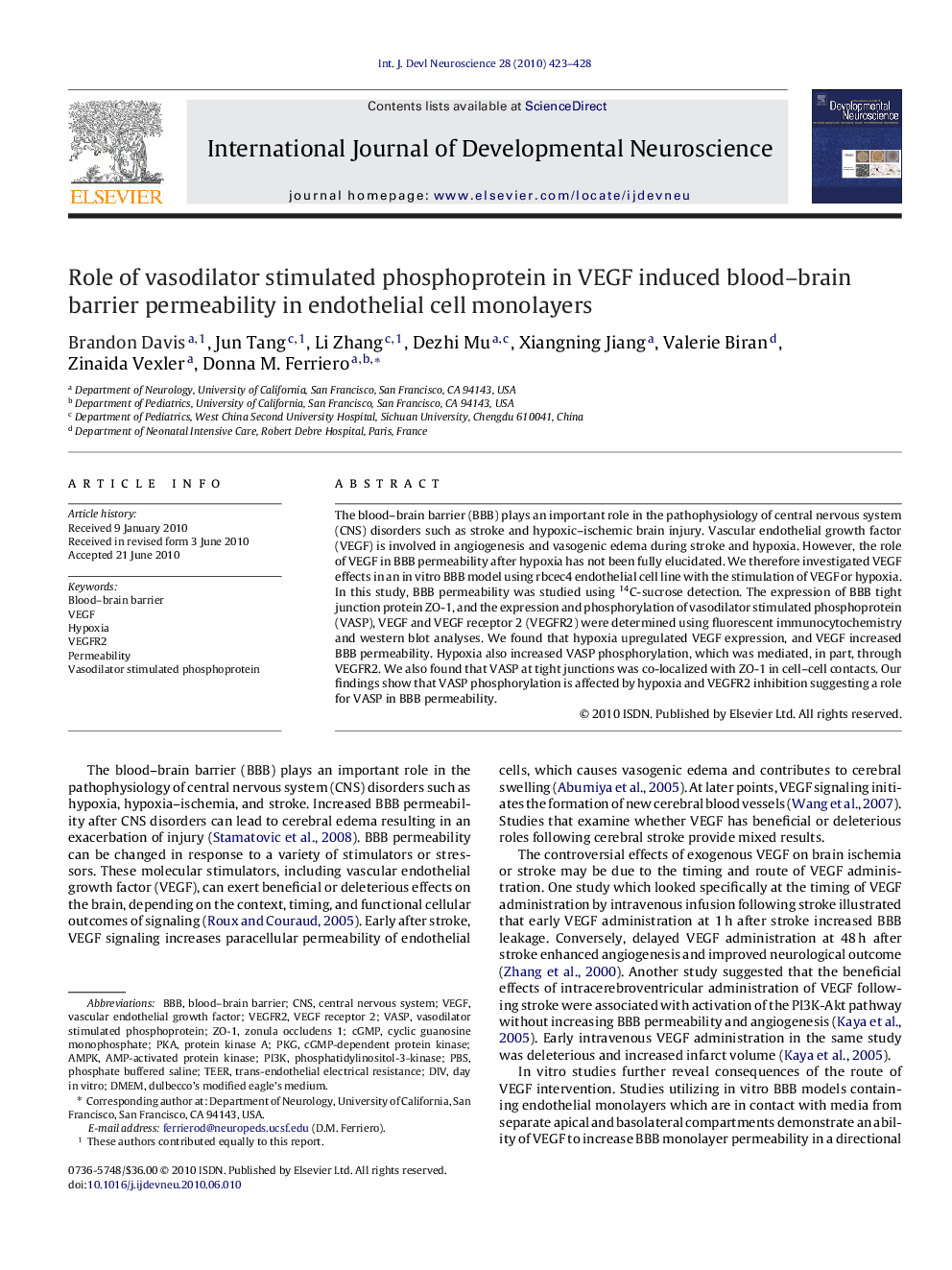| کد مقاله | کد نشریه | سال انتشار | مقاله انگلیسی | نسخه تمام متن |
|---|---|---|---|---|
| 2786598 | 1568426 | 2010 | 6 صفحه PDF | دانلود رایگان |

The blood–brain barrier (BBB) plays an important role in the pathophysiology of central nervous system (CNS) disorders such as stroke and hypoxic–ischemic brain injury. Vascular endothelial growth factor (VEGF) is involved in angiogenesis and vasogenic edema during stroke and hypoxia. However, the role of VEGF in BBB permeability after hypoxia has not been fully elucidated. We therefore investigated VEGF effects in an in vitro BBB model using rbcec4 endothelial cell line with the stimulation of VEGF or hypoxia. In this study, BBB permeability was studied using 14C-sucrose detection. The expression of BBB tight junction protein ZO-1, and the expression and phosphorylation of vasodilator stimulated phosphoprotein (VASP), VEGF and VEGF receptor 2 (VEGFR2) were determined using fluorescent immunocytochemistry and western blot analyses. We found that hypoxia upregulated VEGF expression, and VEGF increased BBB permeability. Hypoxia also increased VASP phosphorylation, which was mediated, in part, through VEGFR2. We also found that VASP at tight junctions was co-localized with ZO-1 in cell–cell contacts. Our findings show that VASP phosphorylation is affected by hypoxia and VEGFR2 inhibition suggesting a role for VASP in BBB permeability.
Journal: International Journal of Developmental Neuroscience - Volume 28, Issue 6, October 2010, Pages 423–428